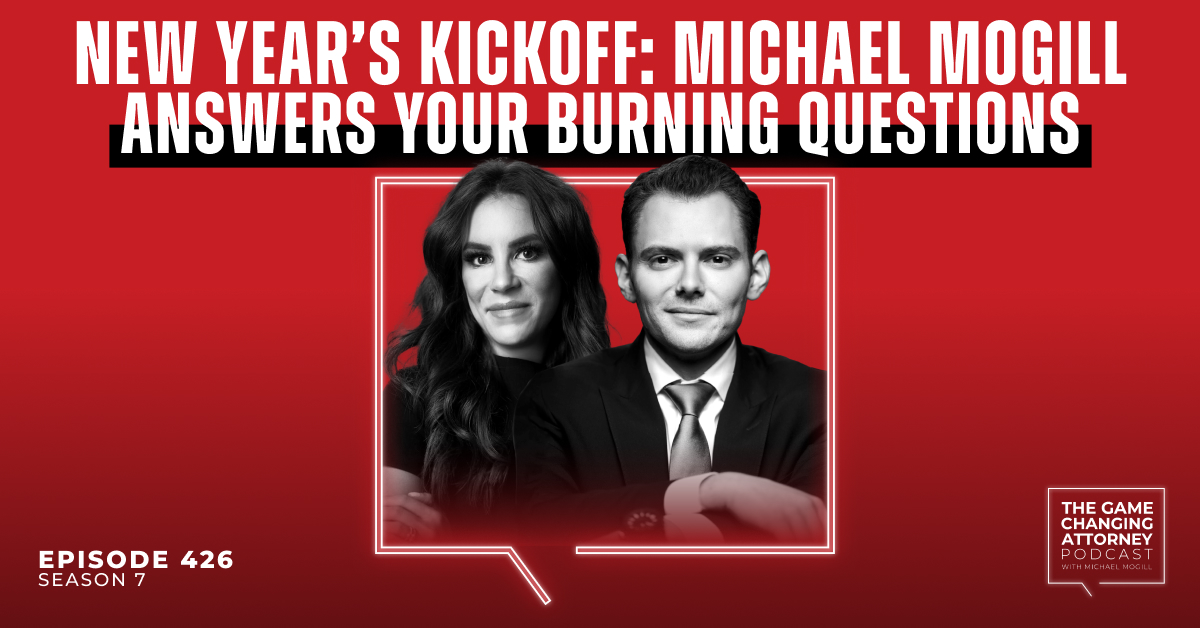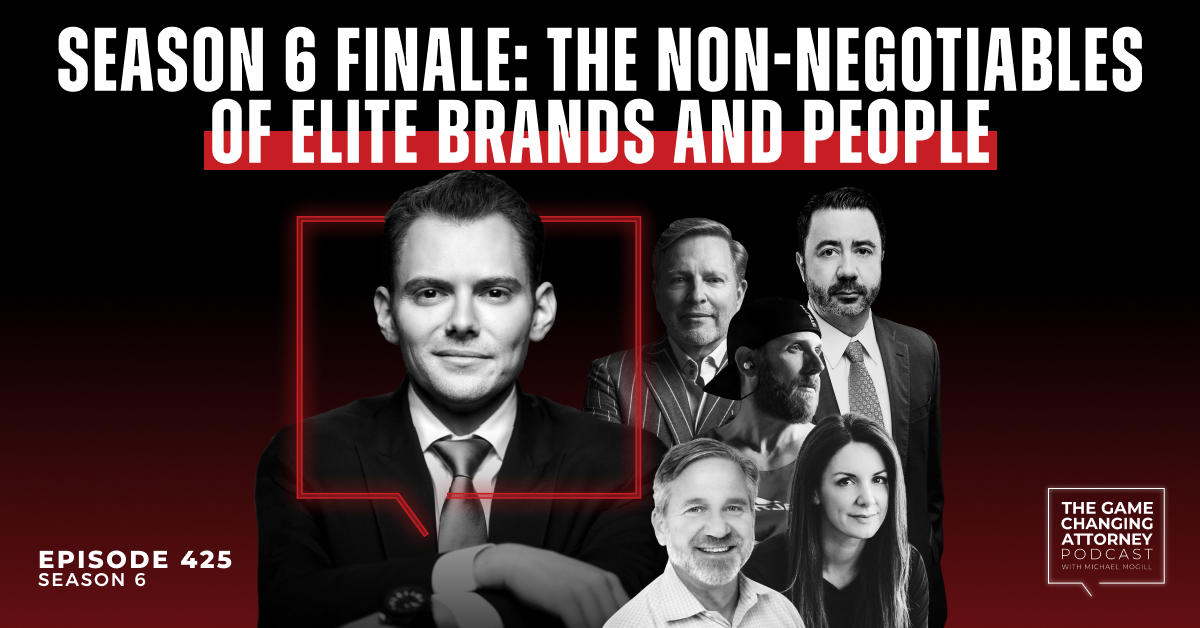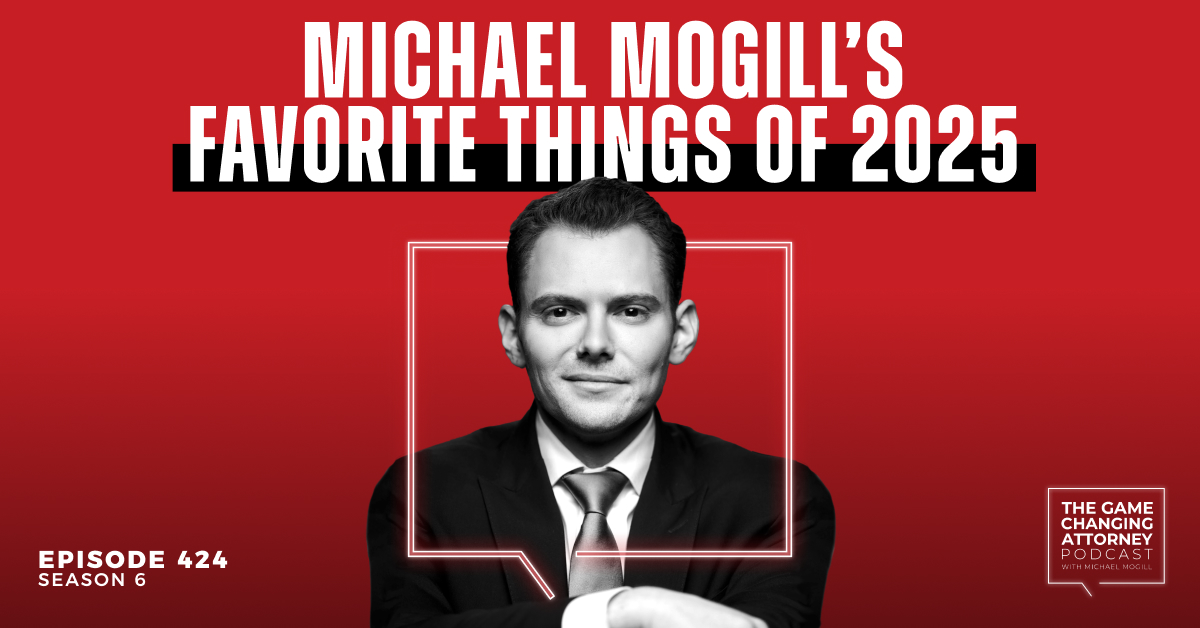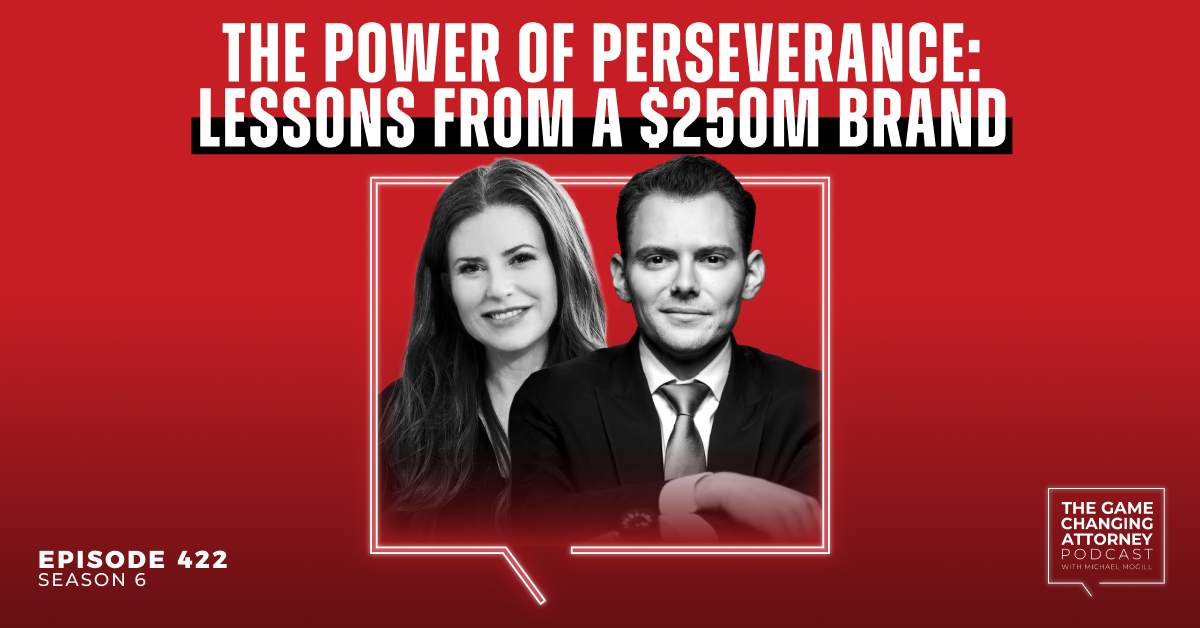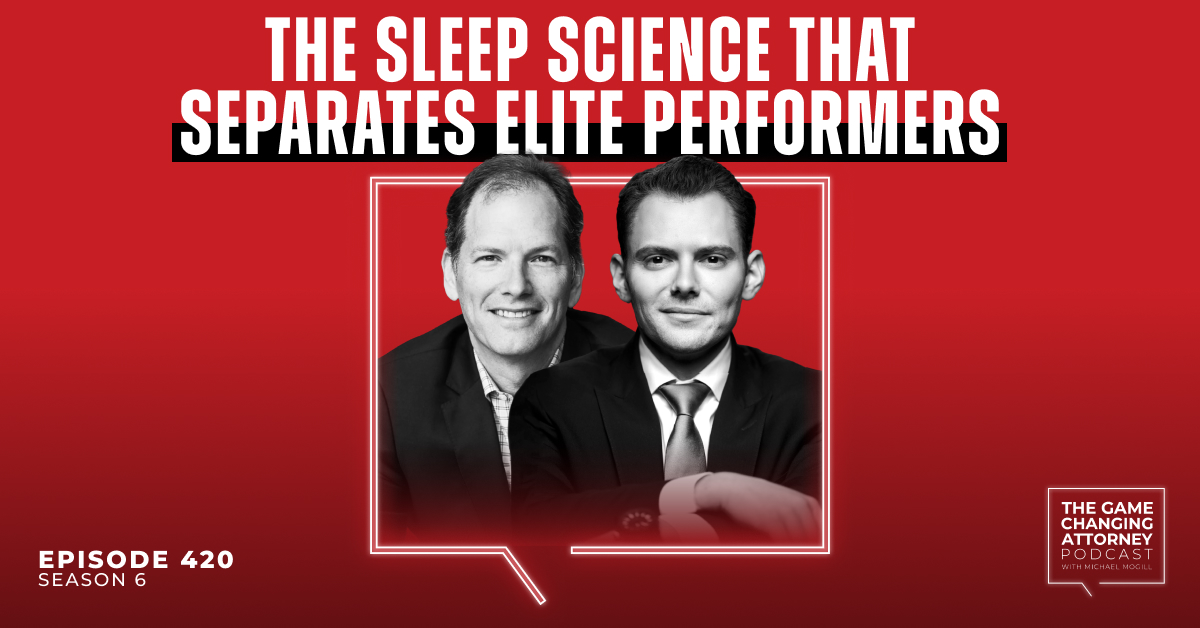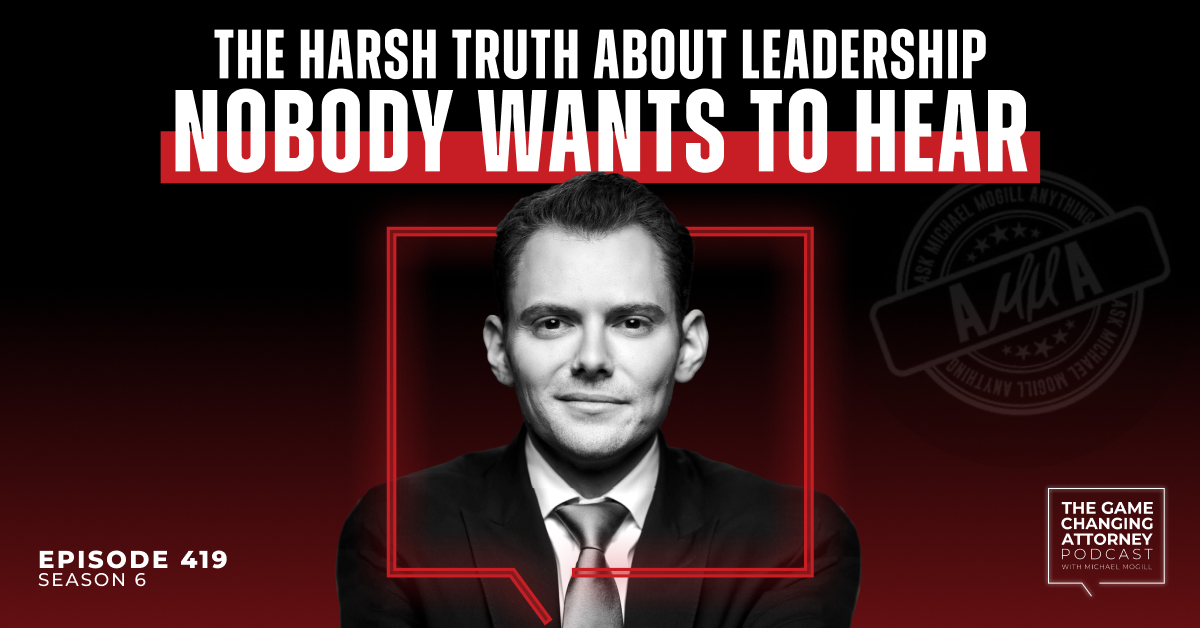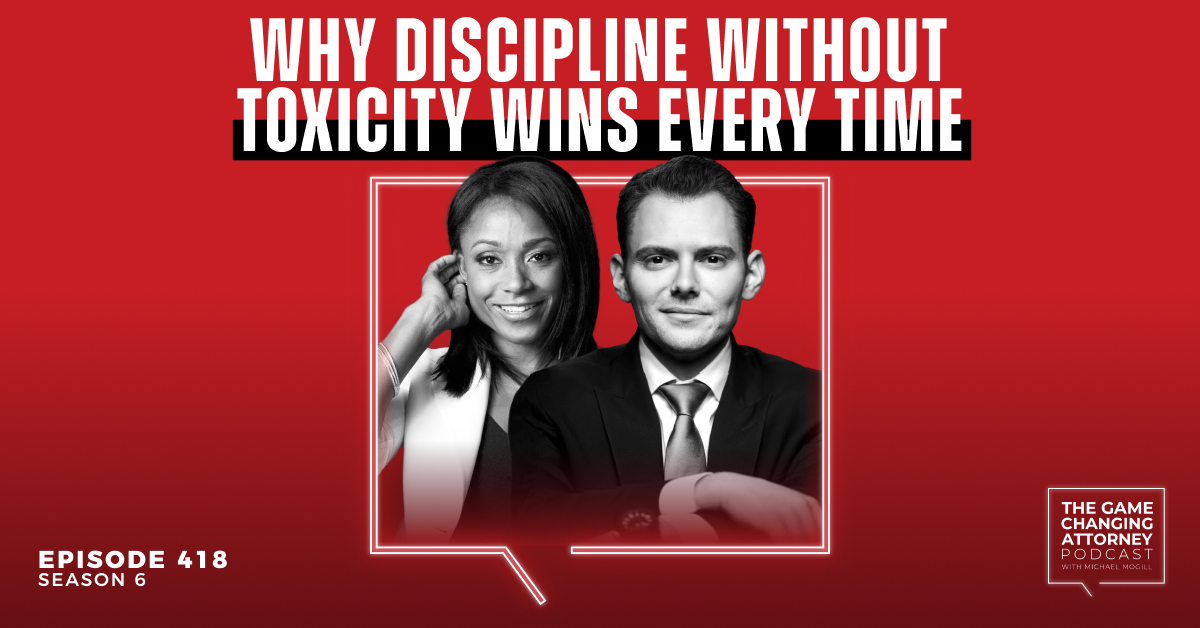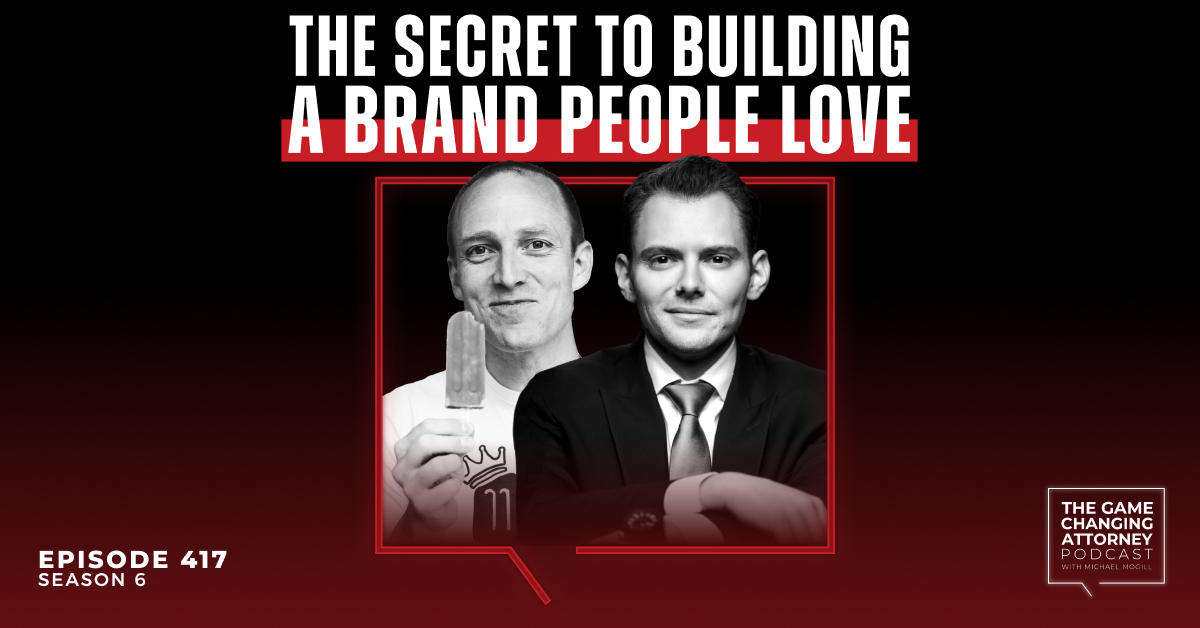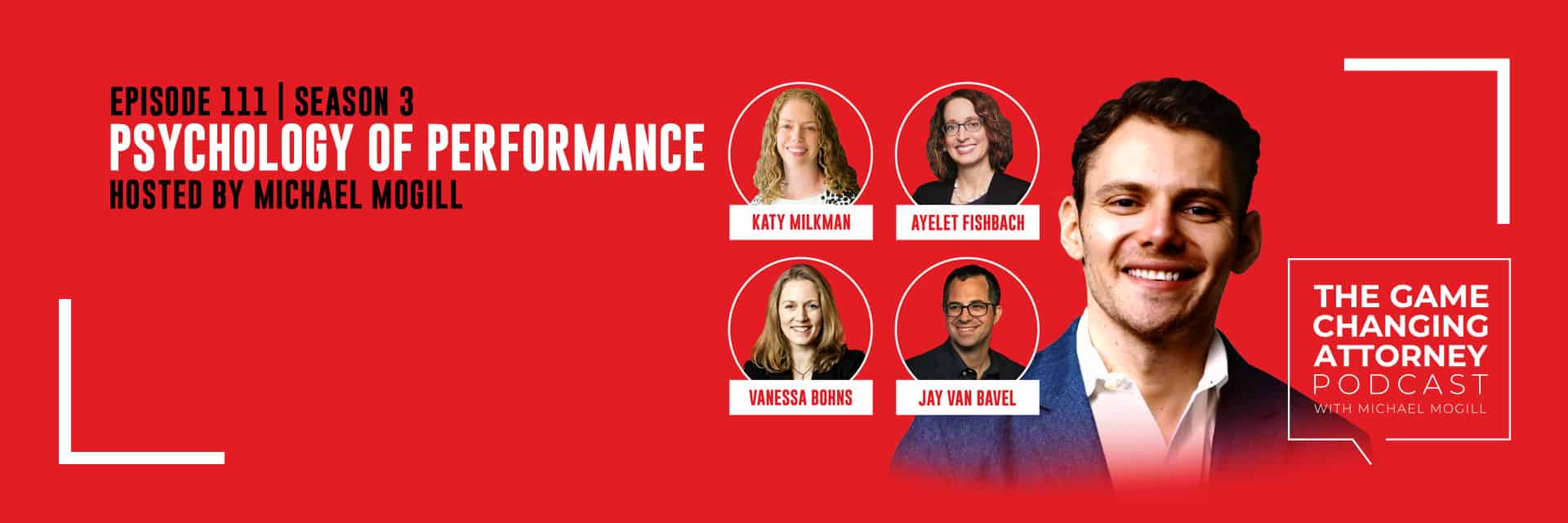
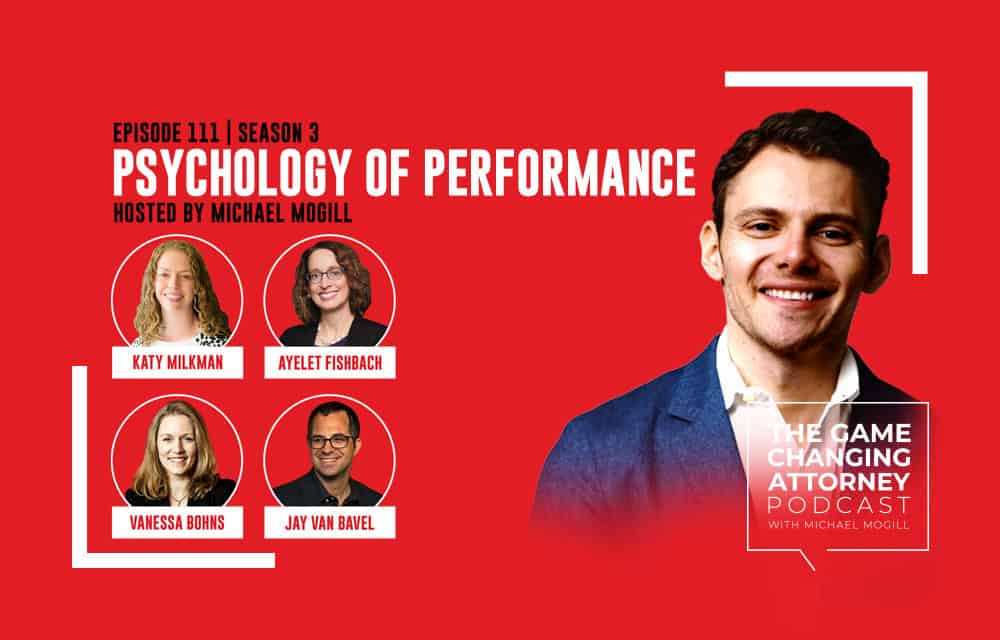
Episode 111 — Psychology of Performance
Humans are interesting creatures — but what makes us tick? Why do we do the things we do and can we better understand ourselves? In this episode of The Game Changing Attorney Podcast, we take a look back at some of the most in-depth conversations about what it means to be a successful human being.
Get ready to hear some thrilling conversations as Michael sits down with his guests to discuss:
- The science of setting and achieving transformational goals
- How powerful and capable we really are
- How to become the person you want to be
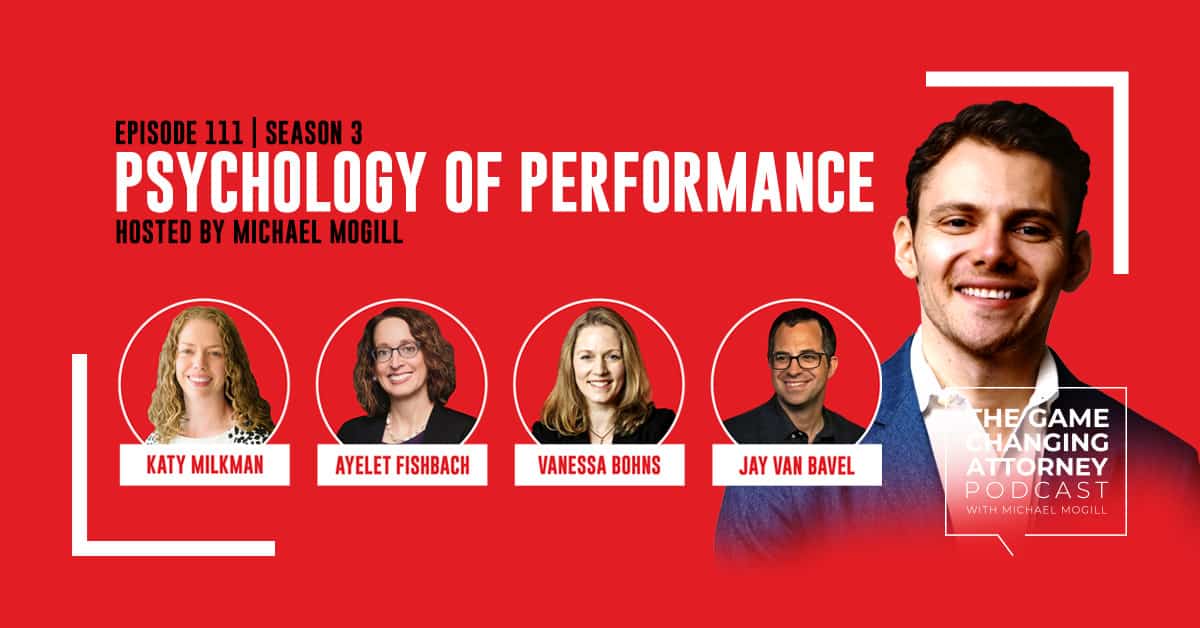
Listen & Subscribe
Show Notes:
Dr. Katy Milkman
A new start. “There are moments in our lives that feel like new beginnings — the start of a new week, a birthday, a new role at work or in your family. There’s a sense of a fresh start and clean state that brings an identity shift. You can say, ‘That was the old me that failed to achieve goals.’ You get a clean slate. At the moments that feel like new beginnings, people are more likely to start pursuing goals.”
The keys to positive habits. “Repetition, reward, and some degree of consistency will allow you to build long-term, lasting, positive habits. You also need some degree of flexibility. If you get too rigid, you don’t build lasting habits.”
Power in numbers. “The power of forming an advice club can be really useful. You see what works for other people who are similar in various ways and copy and paste what works for them. Another feature of an advice club is when you get asked for input, that is incredibly valuable for your own outcomes. It boosts your confidence and makes you feel like, ‘I can do this!’”
Use what you have. “There’s no reason to shut down the tools. We can keep using the tools we use to create temporary change to create lasting change, but it’s important to recognize that there are no quick fixes out there. The reinforcement part is really important to continuing behavior change.”
Dr. Vanessa Bohns
Cloak of invisibility. “The invisibility cloak illusion refers to the idea that as we walk through the world on an ordinary day, we think that no one is paying attention to us. We think we’re essentially walking around in an invisibility cloak. What Emily Boothby at Wharton showed is that people are noticing you and the things you’re doing, wearing, and your behaviors more than we tend to think.”
All eyes on me. “When we’re going about our ordinary life and not acutely self-conscious, we feel more invisible than we are. When we’re self-conscious or embarrassed about something, we think all eyes are on us, and that’s not necessarily true.”
Be yourself. “We think that other people’s memory is more rote, and they’ll remember and hold us to everything we say. It’s more about conveying general warmth, opinions, and ideas.”
The art of having power. “There’s a big difference in the research between people who think about power in terms of opportunity and people who think about the responsibility that comes with power. When you’re in a position of power and show a kind of vulnerability, it suggests that you’re willing to think and care about others. It suggests a pro-social understanding and a responsibility that you’re taking for other people’s outcomes.”
Dr. Jay Van Bavel
Superhero status. “One power we have as humans is that we can operate and shift identities in different groups. Some people think, ‘That’s just being a hypocrite.’ But being adaptable and flexible enough to have different identities is actually key to being successful as we move around the world. People who are really good at that are often very successful in different domains of life.”
Not a fan. “One reason why all fans hate the umps and the refs is that the refs don’t have the same identity on. We’re all biased because we’re fans of the teams. We’re filtering it and seeing things differently than the refs.”
Check yourself. “If you disagree with somebody, always do a naive realism check first to make sure you’re not the one who’s wrong. Always fact check yourself first before you go through the trouble of correcting someone else, because often you’re just not seeing it the right way or you missed something.”
Different perspectives. “As long as one person dissents, even if they’re wrong, it frees up the discussion for other people to think about new things or poke holes in bad ideas and tends to lead groups to better decisions. You can bake this into your procedures to make sure your blind spots get caught.”
Dr. Ayelet Fishbach
More than a goal. “Successful behavioral change is not just goal-setting — it’s monitoring the progress and sustaining your motivation. Once you’ve set your goal, it’s about getting social support. The key is to understand that you change your behavior based on the situation. You change others and yourself when you do this. Change the framing of the situation and everything will follow from there.”
Rebel without a cause. “We tend to rebel when someone tells us not to do something. Once we identify that we don’t want to do something, we really want to do it just because we told ourselves we shouldn’t. You can motivate people by reminding them that other people want them to do something. In an experiment involving adolescents, they were told that marketers want them to eat junk food; in turn, they began eating less and less junk food simply because they want to do the opposite of what they wanted them to do.”
Uncertainty works. “Incentives often work best when they are uncertain. If you only reward the behavior on some occasions instead of every single time, it keeps team members working hard knowing that there’s a chance they might get a certain reward out of it. It’s exciting when incentives are uncertain because people tend to care more about them that way.”
Use it wisely. “However, incentives can seriously backfire, so it’s important to understand when and when not to reward the team. Doing your job quickly might not mean you’re doing it well, which is why we must understand how incentives affect how much people do, how much output there is, and what the quality of work is like.”
EPISODE RESOURCES & REFERENCES
You Have More Influence Than You Think: How We Underestimate Our Power of Persuasion, and Why It Matters by Dr. Vanessa Bohns
Behavioral Contagion
Invisibility Cloak Illusion
The Power of Us by Jay Van Bavel
Social Identity and Morality Lab
Dartmouth v Princeton Football Study
Connect with Michael
- Text directly at 404-531-7691
